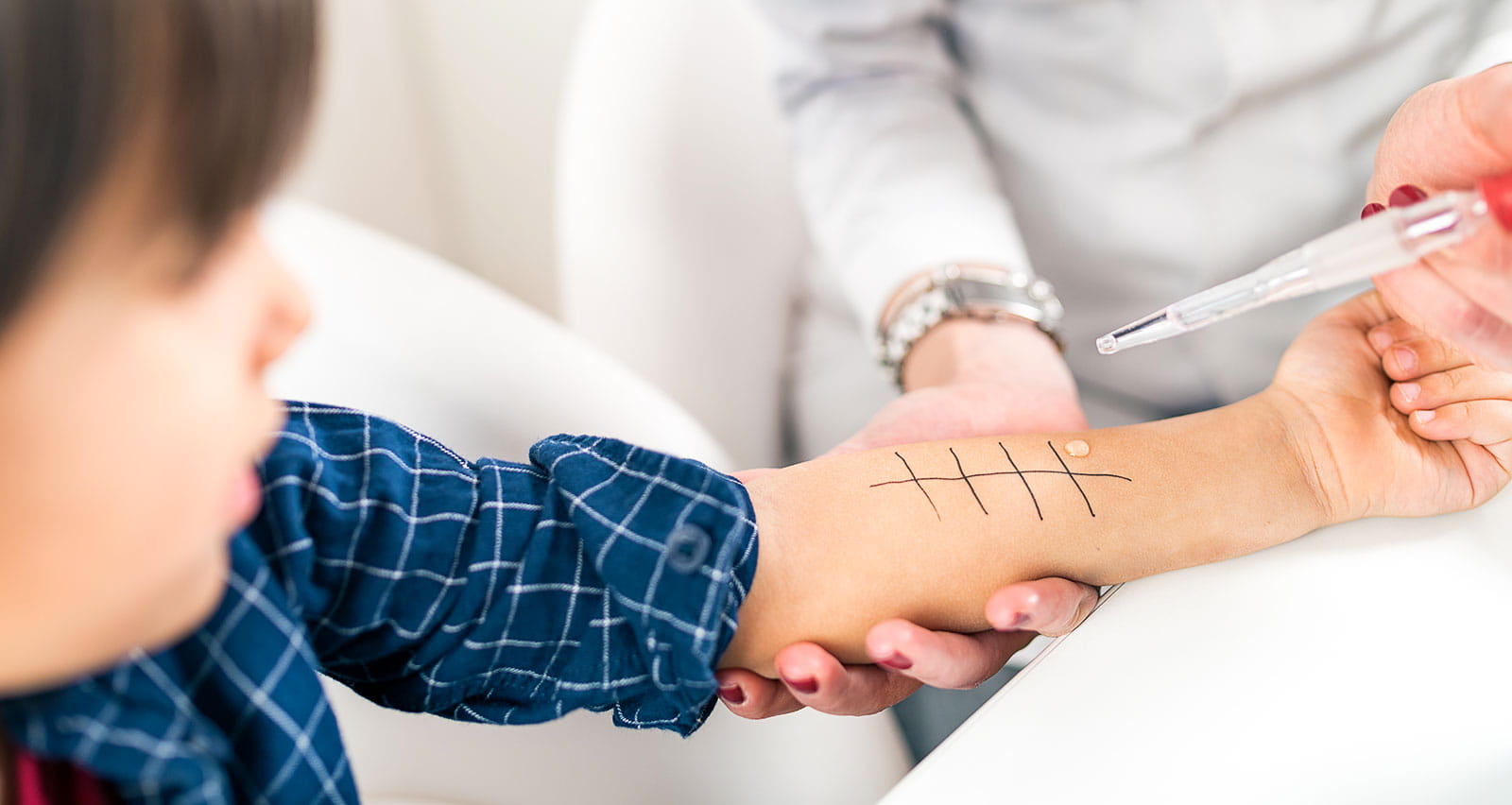
Drug Allergies in Children
Drug allergies, also called medication allergies and drug allergic reactions, occur when something in a medicine causes the immune system to overact. Common drug allergies seen in children include reactions to certain antibiotics, nonsteroidal anti-inflammatory drugs, aspirin, sulfa drugs and chemotherapy drugs.
Schedule an Appointment Today
If you suspect your child has a drug allergy, call the Division of Pediatric Allergy and Immunology at University Hospitals Rainbow Babies & Children’s at 216-844-3237 to schedule an appointment today.
What Causes Drug Allergies?
Any medication taken orally, topically or injected can cause an allergic response. An allergic response occurs when the immune system mistakenly releases inflammatory defense chemicals such as histamine in a reaction to a substance.
What Are the Symptoms of Drug Allergies?
Allergic reactions to drugs range mild to life-threatening. Symptoms your child may experience include:
- Skin issues such as hives, rash or itching
- Swelling of the lips, mouth and throat
- Trouble breathing
- Nausea or vomiting
- Abdominal pain
- Diarrhea
More severe reactions include asthma and anaphylaxis. Anaphylaxis is a medical emergency. The reaction is usually treated an injection of epinephrine. You should carry an emergency kit with self-injecting epinephrine if your child is at risk for anaphylaxis. If you have emergency injectable epinephrine, use it before you call 9-1-1 or take your child to the nearest emergency department.
What Drugs Trigger Allergies in Children?
Common drugs that cause allergic responses in children include:
- Penicillin
- Antibiotics containing sulfonamides (sulfa drugs)
- Barbiturates
- Anti-seizure medications
- Insulin
- Aspirin, ibuprofen and other nonsteroidal anti-inflammatory drugs (NSAIDs)
- Chemotherapy drugs
Testing for Drug Allergies in Children
The compassionate, talented specialists as UH Rainbow Babies & Children’s Pediatric Allergy and Immunology Division know what to look for when we see kids with drug allergies. We have the expertise to determine when symptoms that may appear like those of another type of allergy are caused by an adverse reaction to a medicine. We listen to you and your child, ask the right questions and perform testing to get to the bottom of your child’s symptoms.
Testing options include:
- Oral Challenge: We may recommend an oral challenge, which is a test where we monitor your child after he or she takes the drug by mouth. If appropriate, we may conduct skin testing and blood testing also.
- Skin Test: In a skin test, an allergist or nurse administers a small amount of the suspected drug to your child’s skin either with a tiny needle that scratches the skin, an injection or a patch. A positive reaction causes a red, itchy, raised bump and usually means your child is allergic to the medication.
- Blood Tests: We may order blood work to rule out other conditions that could cause the relevant signs or symptoms.
Treatment of Drug Allergies in Children
We personalize your child’s treatment plan. In doing so, we help you understand your child’s allergy, how to avoid triggers and how to create an emergency plan. When feasible, the best approach to treating a drug allergy is to ensure that your child avoids the offending drug. In some cases, your child may need a specific drug for which there are no suitable alternatives. In that case, we may recommend desensitization, a process in which we safely introduce the medicine to your child in very small doses over time under medical supervision, gradually increasing the dose until your child’s immune system can manage it.
Schedule an Appointment Today
To schedule an appointment with one of our highly trained, compassionate pediatric allergist/immunologists, call 216-844-3237.


